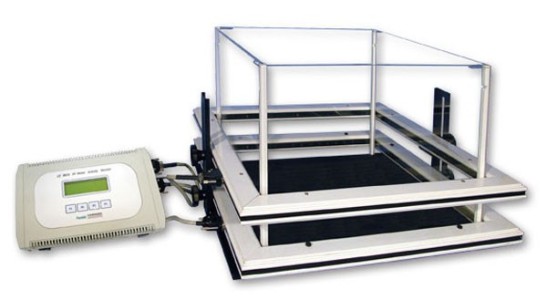Authors
B. Botia, R. Legastelois, S. Alaux-Cantin, M. Naassila.
Lab
Institut National de la Santé et de la Recherche Médicale (ERI 24), Amiens, France.
Journal
PLoS ONE
Abstract
Background
Ethanol-induced behavioral sensitization (EIBS) is proposed to play a role in early and recurring steps of addiction. EIBS does not occur uniformly in all animals even from the same inbred strain. Since recent data demonstrate that epigenetic mechanisms are likely to be involved in the development and the persistence of ethanol-related behaviors, we explored the involvement of epigenetic mechanisms in ethanol response after EIBS development.
Methodology
DBA/2J mice were i.p. injected with saline or ethanol (2 g/kg) once a day for 10 consecutive days. At day 17, ethanol-treated mice were split in resistant and sensitized groups. Brains were then removed 30 min after a saline or 2 g/kg ethanol challenge to assess i) gene expression using PCR array targeting 84 epigenetic-related genes and ii) histone deacetylases (HDAC), histone acetylases (HAT) and DNA methyltransferases (DNMT) activities as well as H4K12 acetylation.
Principal Findings
Acute ethanol administration decreased dnmt1, esco2 and rps6ka5 genes expression. These genes were similarly altered in sensitized but not in resistant mice after an ethanol challenge, suggesting that resistant mice were tolerant to the transcriptional outcomes of an ethanol challenge. Whereas global HAT or DNMT activity was not affected, global HDAC activity was reduced after an acute ethanol injection. HDAC inhibition occurred in all ethanol-treated mice but with a lesser extent in sensitized animals. As a consequence, H4 acetylation was specifically potentiated in the core of the Nac proportionally to the striatal HDAC activity decrease.
Conclusions/Significance
The present study highlights that the contrasted behavioral response to an ethanol challenge between resistant and sensitized mice may be mediated by epigenetic mechanisms occurring specifically in the striatum. Here we show that vulnerability to ethanol dependence and relapse could be, at least in part, due to individual variability in acute ethanol-induced epigenetic response.
BIOSEB Instruments Used
Infrared Actimeter (LE8815)
Source :
http://www.plosone.org/article/info%3Adoi%2F10.1371%2Fjournal.pone.0047527

 Pain - Thermal Allodynia / Hyperalgesia
Pain - Thermal Allodynia / Hyperalgesia Pain - Spontaneous Pain - Postural Deficit
Pain - Spontaneous Pain - Postural Deficit Pain - Mechanical Allodynia / Hyperalgesia
Pain - Mechanical Allodynia / Hyperalgesia Learning/Memory - Attention - Addiction
Learning/Memory - Attention - Addiction Physiology & Respiratory Research
Physiology & Respiratory Research











![Dynamic Weight Bearing 2.0 – Postural Module [Add-on]](https://bioseb.com/733-home_default/dynamic-weight-bearing-20-add-on-postural-module.jpg)
























 Pain
Pain Central Nervous System (CNS)
Central Nervous System (CNS) Neurodegeneration
Neurodegeneration Sensory system
Sensory system Motor control
Motor control Mood Disorders
Mood Disorders Other disorders
Other disorders Muscular system
Muscular system Joints
Joints Metabolism
Metabolism Cross-disciplinary subjects
Cross-disciplinary subjects CONFERENCES & MEETINGS
CONFERENCES & MEETINGS 